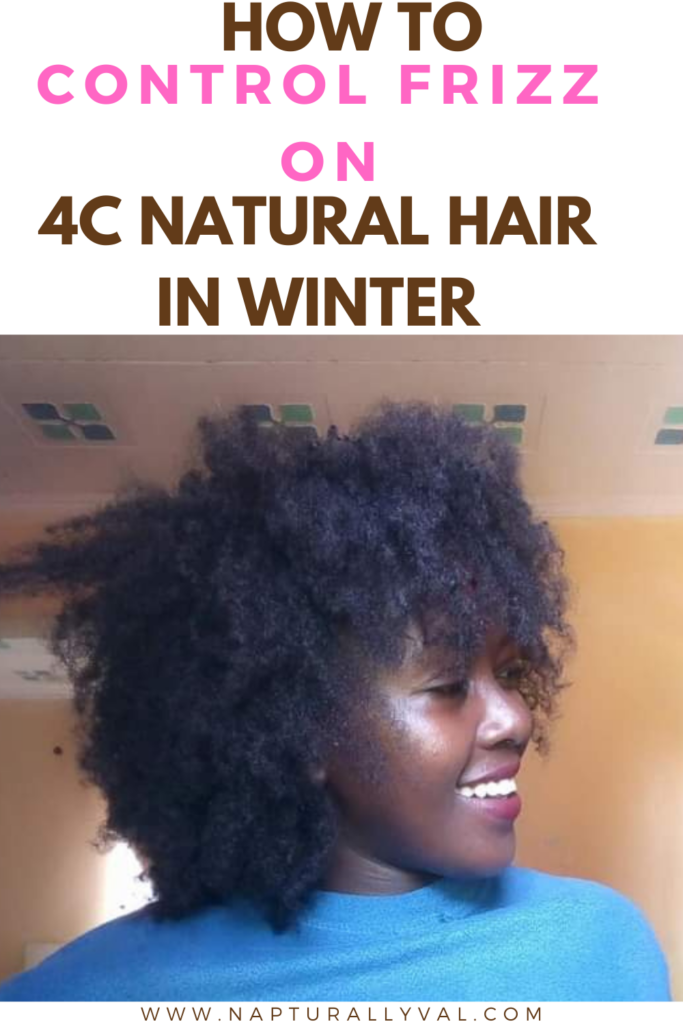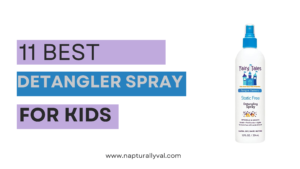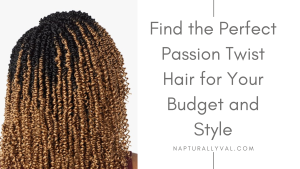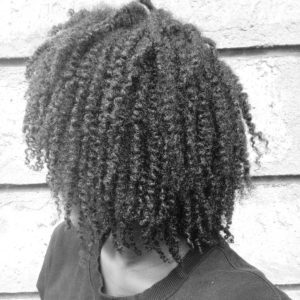Winter can be one of the trickiest seasons for 4C natural hair. With its cold winds, dry air, and constant shift between indoor heat and outdoor chill, maintaining moisture and avoiding frizz can feel like an uphill battle. If you’ve ever wondered why your 4C curls seem to lose their definition and become more prone to frizz during the colder months, you’re not alone. The winter environment is harsh on your strands, pulling moisture from your hair and leaving it dry, brittle, and frizzy.
But don’t worry! With a little extra care and attention to your hair routine, you can keep frizz at bay and rock smooth, defined curls all winter long. In this blog post, we’ll cover the best strategies for controlling frizz on 4C natural hair during the colder months, from proper moisture retention to protective styling.

Table of Contents
Why 4C Hair Gets Frizzy in Winter & How to Stop It
Why Does 4C Hair Get Frizzy During Winter?
Before diving into how to control frizz, it’s helpful to understand why winter weather affects 4C hair so much. The main culprits are:
- Lack of Moisture in the Air: Cold air holds less moisture than warm air. When you step outside in the winter, the dry air pulls moisture from your hair, leaving it dry and more prone to frizz.
- Indoor Heating: On the flip side, when you’re indoors, the heat from radiators and heaters can also dry out the air. This makes it even harder for your hair to maintain moisture.
- Wind and Friction: Winter winds can cause your hair to tangle and create friction, which roughens up your hair’s cuticle, making it more prone to frizz.
- Layered Clothing: Wool scarves, hats, and coats can cause friction against your hair, leading to breakage, tangles, and frizz, especially around the nape of your neck and your edges.
With these factors in mind, it’s clear that controlling frizz during the winter requires a focus on maintaining moisture, reducing friction, and protecting your hair from harsh elements.
Essential Tips for Controlling Frizz on 4C Hair During Winter
1. Lock in Moisture with the LOC or LCO Method
The first line of defense against winter frizz is moisture retention. The LOC (Liquid, Oil, Cream) or LCO (Liquid, Cream, Oil) method is a tried-and-true way to layer products that help seal moisture into your hair.
- Liquid: Start with a water-based leave-in conditioner or mist your hair with water to provide initial hydration. Water is the ultimate moisturizer, and it’s essential for keeping your curls soft and hydrated.
- Oil: After applying your liquid, seal in the moisture with a natural oil. Oils like jojoba oil, argan oil, or olive oil are excellent for sealing moisture into 4C hair without being too heavy.
- Cream: Finish with a moisturizing cream or butter to lock everything in. Products with shea butter, mango butter, or castor oil are great for adding extra moisture and creating a barrier against frizz.
Pro Tip: If your hair is particularly dry during the winter, try the LCO method, where the cream comes before the oil, to see which one works better for your hair’s moisture needs.

Deep conditioning is a non-negotiable step in your winter hair routine. Since your hair loses moisture more quickly during the winter, regular deep conditioning treatments help replenish hydration and restore elasticity. Look for deep conditioners with ingredients that penetrate the hair shaft and provide long-lasting moisture, such as:
- Honey (a natural humectant that draws moisture into the hair)
- Aloe vera (soothing and hydrating for the scalp and hair)
- Coconut oil (nourishes and helps reduce protein loss)
- Shea butter (rich in fatty acids to soften and moisturize)
Aim to deep condition your hair at least once a week during the winter. You can even amp up the treatment by using a steamer or sitting under a hooded dryer to allow the conditioner to penetrate more deeply.
Pro Tip: Cover your hair with a plastic cap after applying the deep conditioner to trap in heat, which will help the product work more effectively.
3. Use a Humectant-Free Styling Gel
Humectants, such as glycerin and propylene glycol, are often found in hair products because they attract moisture from the air into your hair. However, during the winter, when the air is dry, humectants can do the opposite—they can draw moisture out of your hair, leading to more frizz.
To prevent this, switch to a humectant-free gel or cream for styling. These products help maintain definition without pulling moisture from your curls in the dry winter air. Products like Eco Styler Olive Oil Gel or Aunt Jackie’s Don’t Shrink Curling Gel are excellent for keeping your curls smooth and frizz-free without the drying effects of humectants.

4. Opt for Protective Styles
Protective styles are a go-to during winter because they shield your hair from the elements while helping you retain moisture. Styles like box braids, mini twists, cornrows, or even wigs can keep your hair tucked away, reducing friction and exposure to cold air.
When wearing protective styles, it’s important to continue moisturizing your scalp and the exposed parts of your hair. Use a light, water-based spray to keep your hair hydrated underneath your protective style. You can also apply an oil like castor oil or jojoba oil to your scalp to nourish it and prevent dryness.
Pro Tip: Make sure to moisturize your hair thoroughly before installing any protective style. Dry hair under a protective style can lead to breakage and more frizz when you take it down.
5. Protect Your Hair from Friction
Wool scarves, hats, and coats may keep you warm, but they can also wreak havoc on your hair by creating friction, which leads to frizz, tangles, and breakage. To avoid this:
- Wear a satin or silk scarf underneath your winter hat to protect your edges and prevent friction against your hair.
- If you’re wearing a wool coat or scarf, tuck your hair into a satin-lined hood or wear a silk scarf around your neck to reduce direct contact with the wool.
Pro Tip: Invest in a satin-lined winter hat or make your own by sewing a satin lining into your favorite beanie. This reduces friction and keeps your hair smooth while still keeping you warm.

6. Sleep with a Satin or Silk Scarf/Bonnet
Maintaining frizz-free hair doesn’t stop when the day is over. Sleeping on a cotton pillowcase can rob your hair of moisture and increase frizz due to friction. Always sleep with a satin or silk scarf or bonnet to protect your hair. These materials help maintain your hair’s natural oils, reduce friction, and prevent frizz while you sleep.
If scarves and bonnets aren’t your thing, you can opt for a satin pillowcase instead, which offers similar benefits without having to wrap your hair at night.
7. Use a Leave-In Conditioner with Anti-Frizz Properties
Adding a leave-in conditioner with anti-frizz properties to your routine can give your hair an extra layer of protection against winter frizz. Look for leave-ins that contain:
- Aloe vera (to smooth the cuticle and add shine)
- Silicones (to create a barrier that locks in moisture and repels frizz)
- Avocado oil or coconut oil (to soften and smooth hair)
A good leave-in conditioner can be applied daily to refresh your hair and keep frizz at bay. Apply it in the morning or before styling for an added moisture boost.
Winter frizz doesn’t have to be an inevitable part of the season. With the right techniques and products, you can keep your 4C hair smooth, defined, and frizz-free all winter long. Focus on locking in moisture, protecting your hair from the harsh elements, and using frizz-fighting products to give your curls the care they need during the colder months.
By deep conditioning regularly, using the LOC or LCO method, wearing protective styles, and taking steps to reduce friction, you can enjoy frizz-free, hydrated hair—even in the harshest winter weather.



